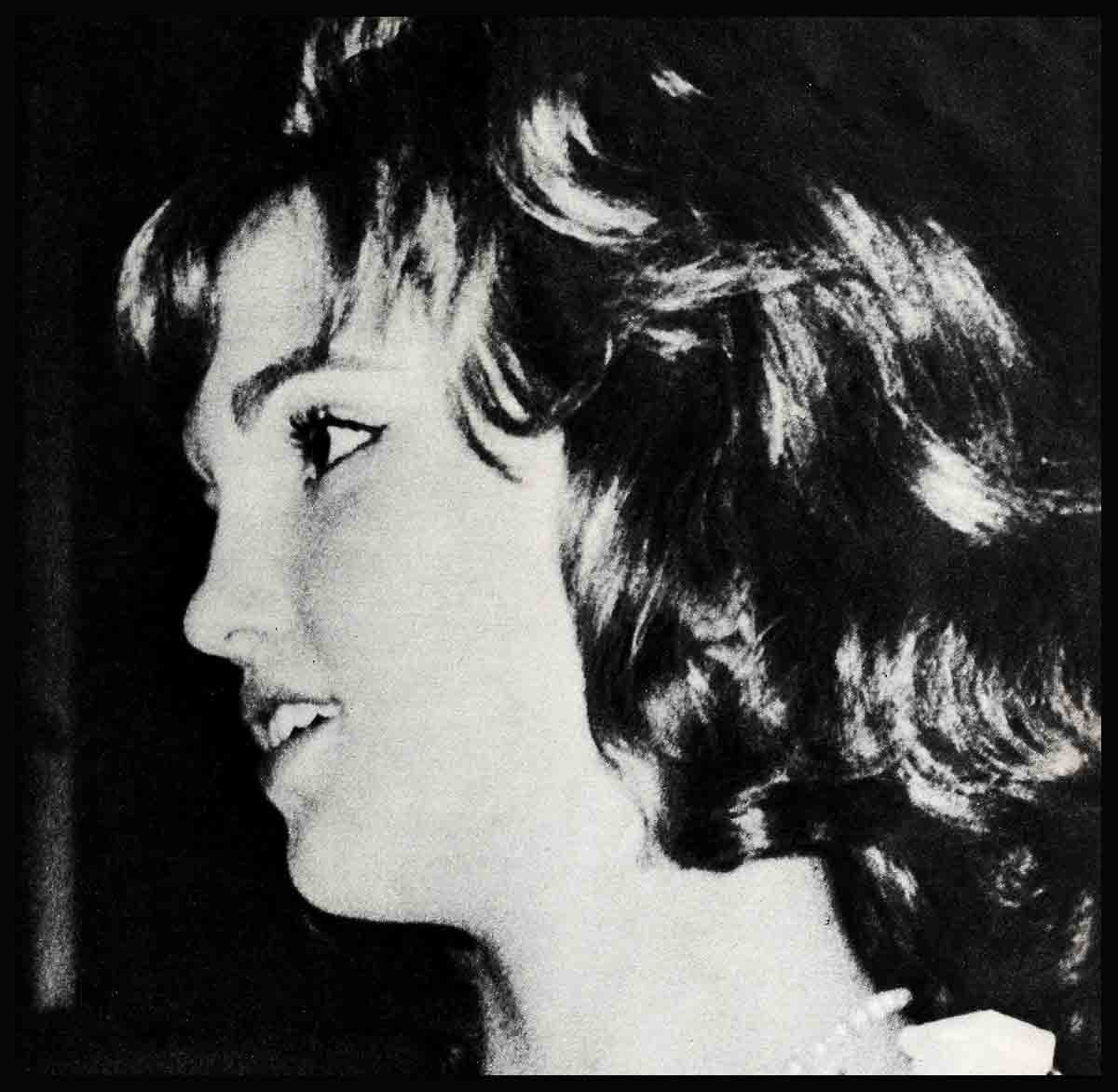
Why Lana Turner Let Them Put Her Daughter Away?
A sudden ray of sunlight streamed through the tall, high windows of the Santa Monica courtroom and down into the shadowed center, just catching the highlights of Lana Turner’s blond hair as she sat, her head bent low, listening to the probation officer. There was a wistful look on her face as she heard his words, spoken in low, legal terms. . . . “So we feel the girl needs a vacation from home,” he was saying, “and that she will have a better chance to adjust there,” he explained.
Lana knew only too well what he meant. He was speaking of her daughter Cheryl and of a girls’ home she had visited just the day before. Located deep in the San Fernando Valley and cut off from society by high walls and closed gates, it was a place where teenage girls who are troubled and need guidance can try to work out their problems. Even though the teachers had seemed kind and had promised to look after Cheryl, she couldn’t help remembering how she had shuddered, just a little, as she had walked past the high walls. “Almost prison-like,” she had whispered to herself and had shuddered again.
Lana broke away from her thoughts, looked up and across at the probation officer who had just finished speaking. Near him was Cheryl, her only daughter. Cheryl, seemingly so calm, yet not once looking in her direction. Her white gloved hands were clasped together on her lap, she noticed, her feet tucked in neatly—almost primly—underneath the chair. She had such an innocent, peaceful look on her face that it made the whole session seem ridiculous.
Watching the probation officer as he talked quietly with the judge and with another officer of the children’s court, Lana wondered if he—if any of the serious-faced, pensive men in that room—really knew the suffering that surrounded them.
She looked down, sighing so heavily, that it sounded like a sigh of failure. The sigh of a woman who perhaps is just admitting to herself, for the first time, the full implications of what has taken place. For what she had just consented to, was like saying, I have failed in my duty as a mother. I need the help of the state. I no longer know how to control my child; how to bring her up to be a mature adult.
She twisted around in her seat, her eyes hardly noticing the now familiar drabness of the plain wooden chairs and tables in that conference court room. For she had been there so many many times in the past weeks, talking things over, explaining and then explaining again.
But can you really explain what it feels to be a mother . . . a mother who is distraught, a mother who night after night, turns frantic in her bed? And finally comes to the only decision she could make?
She looked back at Cheryl . . . it was so difficult to tell Cheryl—Cheryl who had given her everything.
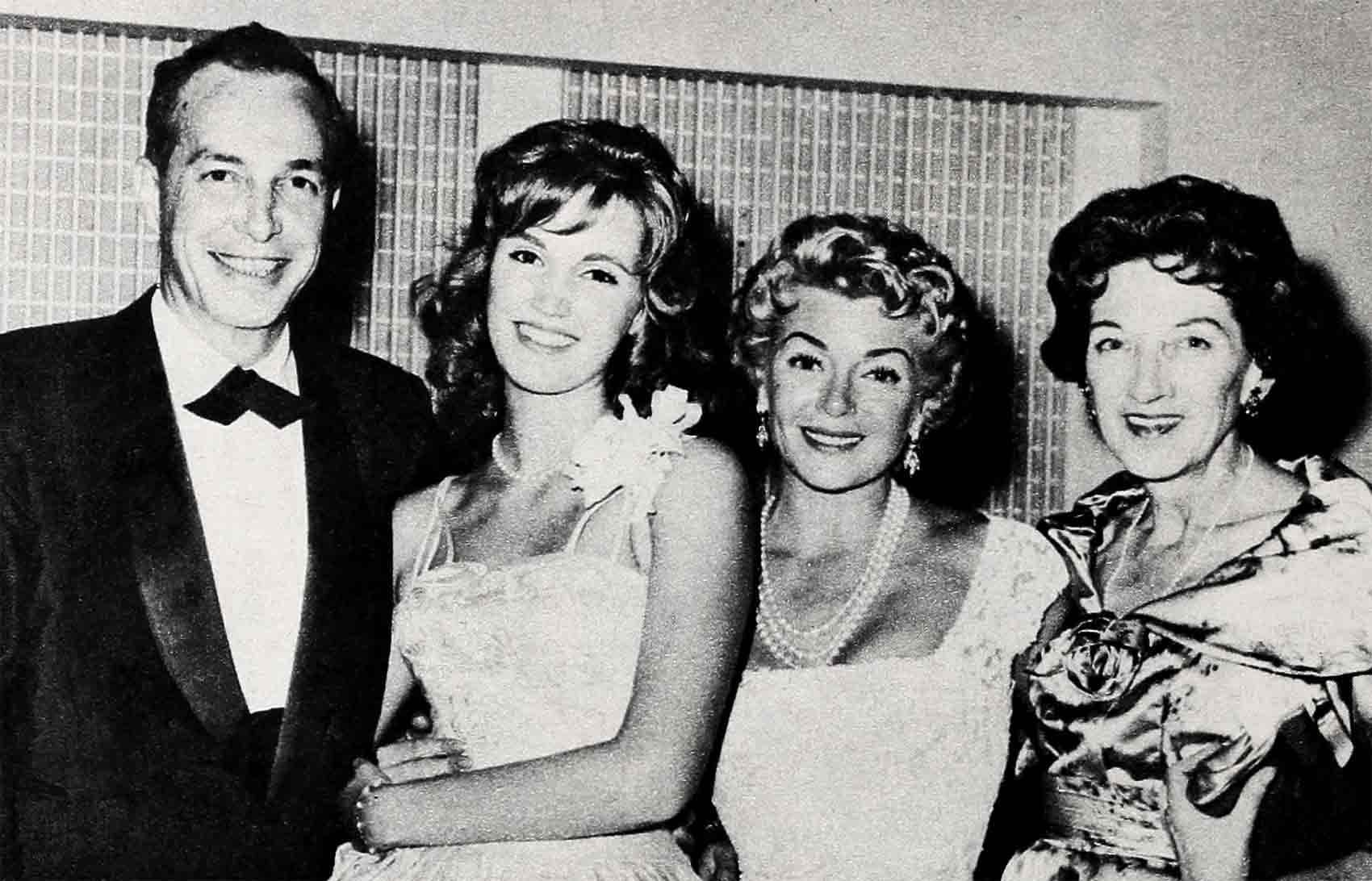
She was never alone
“But I’ve never let her be alone,” Lana said almost to herself. But immediately after she had said the words, she was aware of the feeling that somewhere, at sometime, they’d been said before.
They had. The day they’d all been in court, in the same court, just two years ago, fighting off a serious charge against Cheryl who had stabbed Johnny Stompanato, Lana’s current boyfriend, “because he was going to hurt my mother.”
. . . No. Cheryl had never been left alone. She had been turned over to grandmother, or to a nurse or to a governess, or an exclusive girls’ school, whenever Lana was working—or getting married, or engaged with a current romance, or merely living it up at some pleasure resort. But had the mere physical presence of someone to watch over Cheryl been enough to prevent the psychological ravages of loneliness in a young girl’s life?
Lana looked, again, at her daughter, at the face she knew so very well. “Have I left her alone, in the one important way . . . and is this the result?”
She questioned. She could not find the answer, for another greater question was burning in her mind. She was allowing the state to take away the daughter who had killed to protect her. The daughter who so loved her mother that she had taken up a knife and stabbed the man who threatened her life.
Will Cheryl ever understand why I am allowing what is happening today? Perhaps that was the hardest question of all to answer.
And, yet, it had been inevitable. . . .
“Cheryl had become unmanageable”—the words hurt when she first heard them. “Too much to handle.” What did that mean? She saw her often—even though she lived with her grandmother for the past two years. Yet she’d slip out at night, after her grandmother had seen her safely to bed, to go out on a date or to a friend’s party. Other girls did this, but Cheryl was different.
As Lana sat in the court, her thoughts went back to her own teenage years. Because, in an ironic twist of history, Cheryl seemed about to take the same drastic step she herself had taken in her teens. And one of the severest blows for any mother is to see her daughter make the same mistakes she did; a blow so hard she will do anything to prevent it.
“Please Cheryl. Look out. Be careful,” she’d tried to warn her. “Don’t marry in haste and foolishness as I did.”
But, as Cheryl had stood before her, elopement in mind, she could almost see herself at Cheryl’s age (or was it just a few months older?), indignant and hurt over a broken romance to the extent that she eloped to Las Vegas with Artie Shaw to begin a marriage that was almost doomed from the start; a marriage that was soon to end in divorce and begin her on the desperate search for real love that had taken her through four husbands by the time Cheryl was twelve.
For Lana, real love had been hard to find. Almost overnight, she had become a famous movie star, a symbol of love herself. But she was so young, at the time, that the glitter of Hollywood had dazzled her, blinding her, perhaps, to what was real and what was not. Most people are able to lead normal, happy lives in Hollywood, but Lana had never seemed to be one of these people. Neither had Cheryl. She’d always said she didn’t like Hollywood, that she wanted to leave it. She’d been happy when her father had promised that, when she was seventeen, he planned to take her away from there, to live in New York.
Lana wanted to warn her daughter that running away wouldn’t help, that rushing into a hasty young love wasn’t the answer, either.
Could Cheryl now, at sixteen, and her emotions already strained, really understand this plea? Is there ever understanding between a parent and a child?
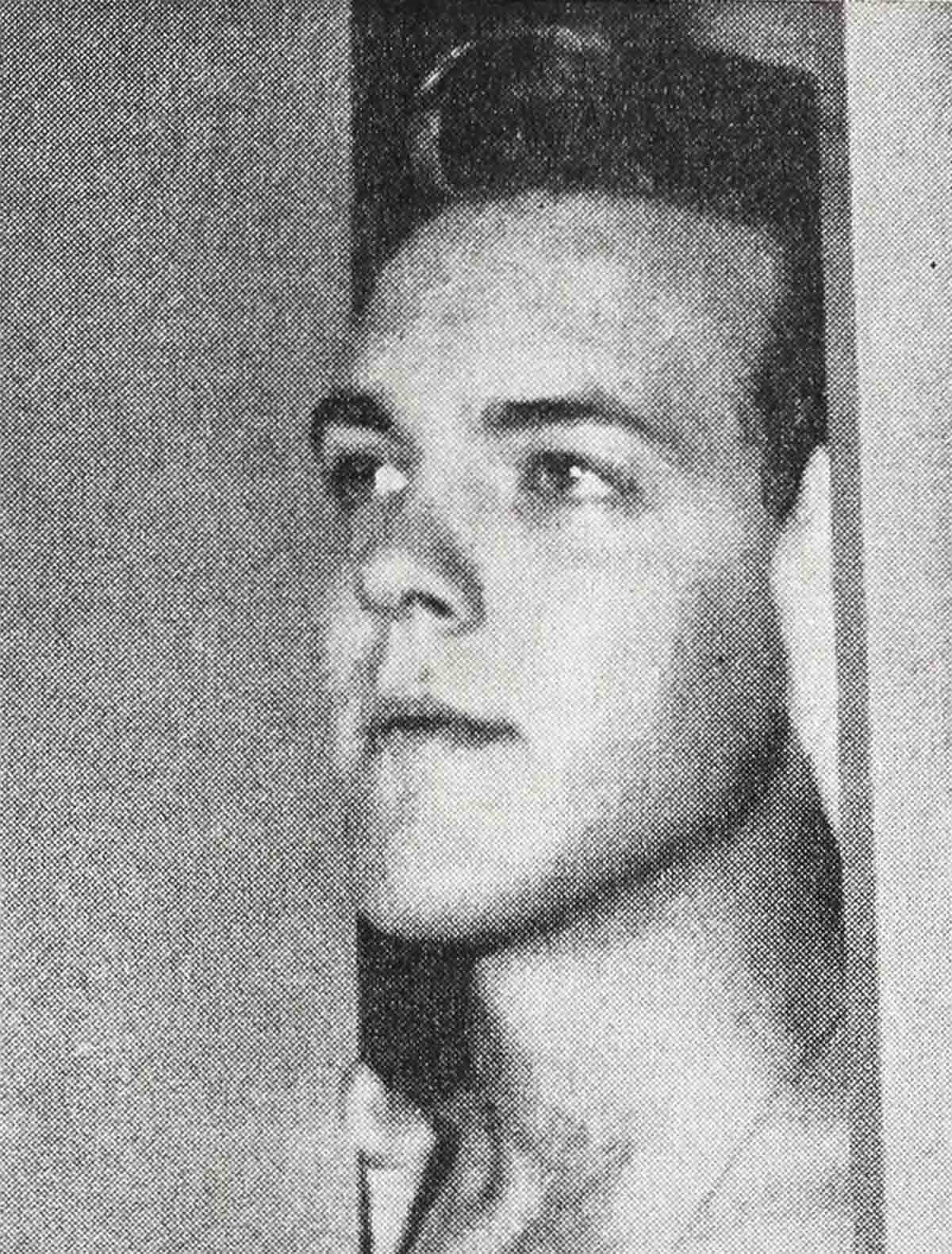
Cheryl’s romance
The gentle romance of Cheryl and Marty began about a year ago in quite a natural way. Cheryl had been invited out for a drive, one evening, by a group of kids at her school—Beverly Hills High—and they had pulled in at a drive-in restaurant on Wilshire Boulevard where Marty happened to be the night fountain man.
“I was on a break, at that particular moment,” Marty had explained to Lana. “Somehow Cheryl and I got to talking. She seemed like a wonderful girl—of course, I didn’t know, then, she was your daughter—and I asked her for a date. We must have really started dating about two weeks later.”
And that had been the start of it all. From then on, they would see each other quite often, going to a movie or maybe just to have a hamburger or a soda . . . always laughing, always having fun.
One day, Cheryl had asked her proudly, “Would you like to meet Marty?” For, as Cheryl lived with her grandmother, she had had no opportunity of meeting him.
She’d said, “I’d love to.”
The first meetings were strained. For her, meeting Cheryl’s boyfriends was a new experience but she tried to be friendly. Marty seemed a little awed and Cheryl somewhat awkward, but finally it seemed as though Marty was accepted.
“Marty’s a nice boy,” she’d told a friend afterward. “He came to dinner and I like him very much. Of course, Cheryl dates others as well.”
At about this time, the papers were full of rumors that Lana was about to marry again. She and Fred May, a businessman, were seen everywhere together, and her friends said that Lana was her old self again, that a new love had helped her to forget the Stompanato tragedy. Perhaps Cheryl, seeing the answer her mother had found, had wanted love for herself, too, despite her young years.
But, at the time, there was no mention of such a serious step as elopement or marriage, something which was to shock Lana so much, that she was finally to deny, publicly, that it had ever been put to her.
In fact, she remembered, when she first found out about it, she was so concerned, she immediately contacted Cheryl’s father, Steve Crane, with the thought of sending Cheryl to a private school.
“But maybe Cheryl will run away from a school,” Steve pointed out.
She had done just that when she was twelve, her first act of real rebellion. . . .
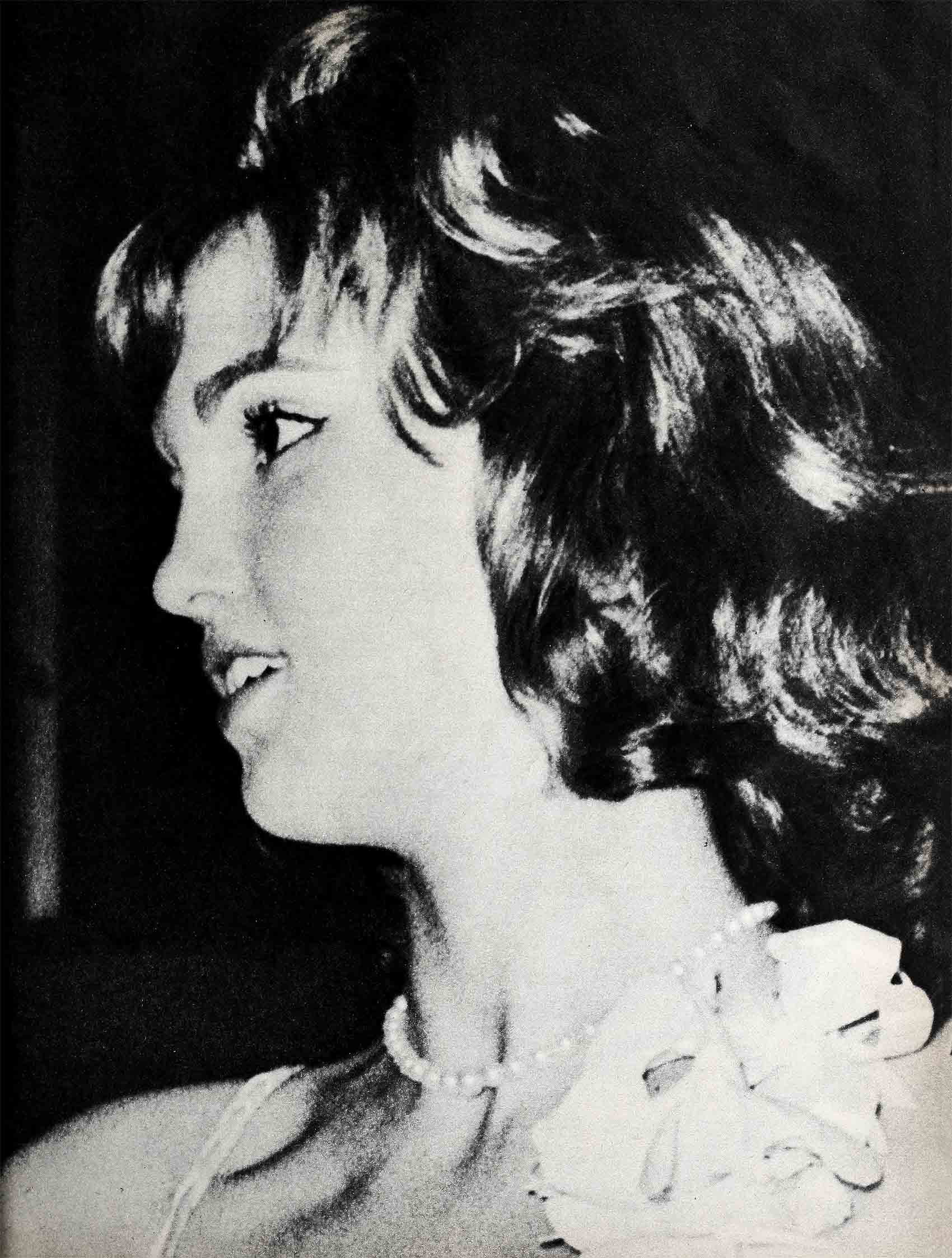
The spring of ’57
It was the spring of 1957, she remembered. Cheryl had been attending the Sacred Heart Academy at Flintridge, near Los Angeles. She had been doing well with her studies but some of the other girls, Lana heard later, had been teasing her about her mother’s marriages. At the time, Lana was just breaking up with her fourth husband, Lex Barker, and ugly rumors were floating around about her new boyfriends.
And so, by the time Lana came to take her for a weekend in Palm Springs, Cheryl had an idea in her head.
As soon as she put Cheryl into a taxi—she was told the next day—with another school friend, Maggie Douglas, on their return to the school early on the Sunday evening, Cheryl had turned to Maggie with a glint in her eyes. “I’m not going back to school, Maggie,” she’d said. “I don’t like it there.” Then, leaning over a little further she’d added in a whisper, “I’m going to run away.”
Sitting up straight, Cheryl had then put on a sophisticated tone and said to the driver, “Could you please stop at the drugstore on the corner. I need something.”
Four hours later, Cheryl was walking alone along Los Angeles’ seamy Skid Row area, a suitcase in hand. It was more or less fate, she didn’t end up in trouble. Noticing the attractive young girl wandering jauntily down the street, three sleazy-looking characters started in pursuit. Cheryl, glancing around, saw them and became frightened and ran to a motorist parked in a nearby car.
“Please help me,” she’d cried frantically. “Those three men are following me.”
She told the driver she had come from a broken home in Palm Springs, needed a cheap hotel room for the night and would start looking for a job in the morning. Looking closely at Cheryl, and seeing she couldn’t have been more than thirteen years old, he’d sensed the story was not true and drove her to a police station on the pretense he was taking her to a place to spend the night. . . .
No, Cheryl couldn’t be trusted in an ordinary school, Lana thought as she sat in the courtroom. I guess this is the only solution.
Would she understand?
Yet, could she commit her own daughter? The daughter who, in thanks for all she had done for her, had secretly arranged a surprise party only last spring?
She would never forget that night. The night when she’d gone with Cheryl to the Luau restaurant in Beverly Hills, expecting just to spend her birthday with her daughter quietly, but instead, had suddenly come into the restaurant to find a dozen voices singing “Happy birthday,” and Cheryl saying softly, “I wanted to surprise you, Mother. I wanted to give you a party.”
Would Cheryl, who seemed to love her so much, understand that what was happening was for the best? That she was not sending her away because she did not love her any more, or want her, but because she thought that she needed the guidance? Would she understand that her mother knew the wild, impetuous things she had been doing had really been the result of shock, the shock of the stabbing, and not of ill will, and a shock that the professional guidance at the school could help soothe?
She stood up, as everyone stood up. For the session was over. Cheryl, she noticed, still never looked at her. It hurt. But it must have hurt Cheryl, too.
Perhaps, one day, she sighed, as she watched her daughter walk slowly out through another door, accompanied by the probation officer, she will understand truly what is happening; she will really believe that it was done for her so she might have a better chance in life; a better chance for happiness. Perhaps, one day, when she is grown up and married and has children of her own, she will understand that it took love, for us to make this decision. . . .
THE END
—BY BARBARA HARRIS
SEE LANA IN U-I.’S “PORTRAIT IN BLACK.”
It is a quote. PHOTOPLAY MAGAZINE JUNE 1960


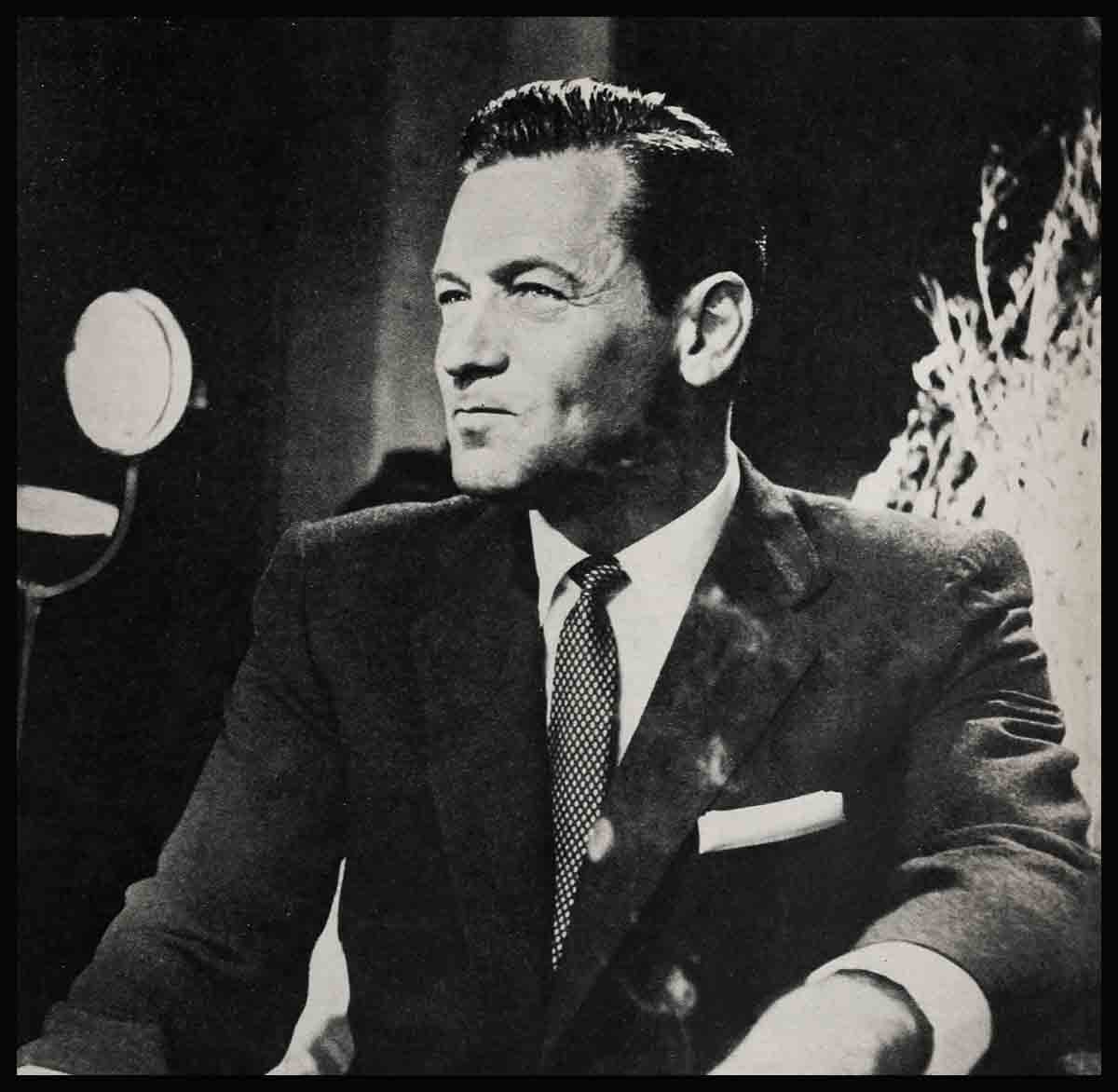

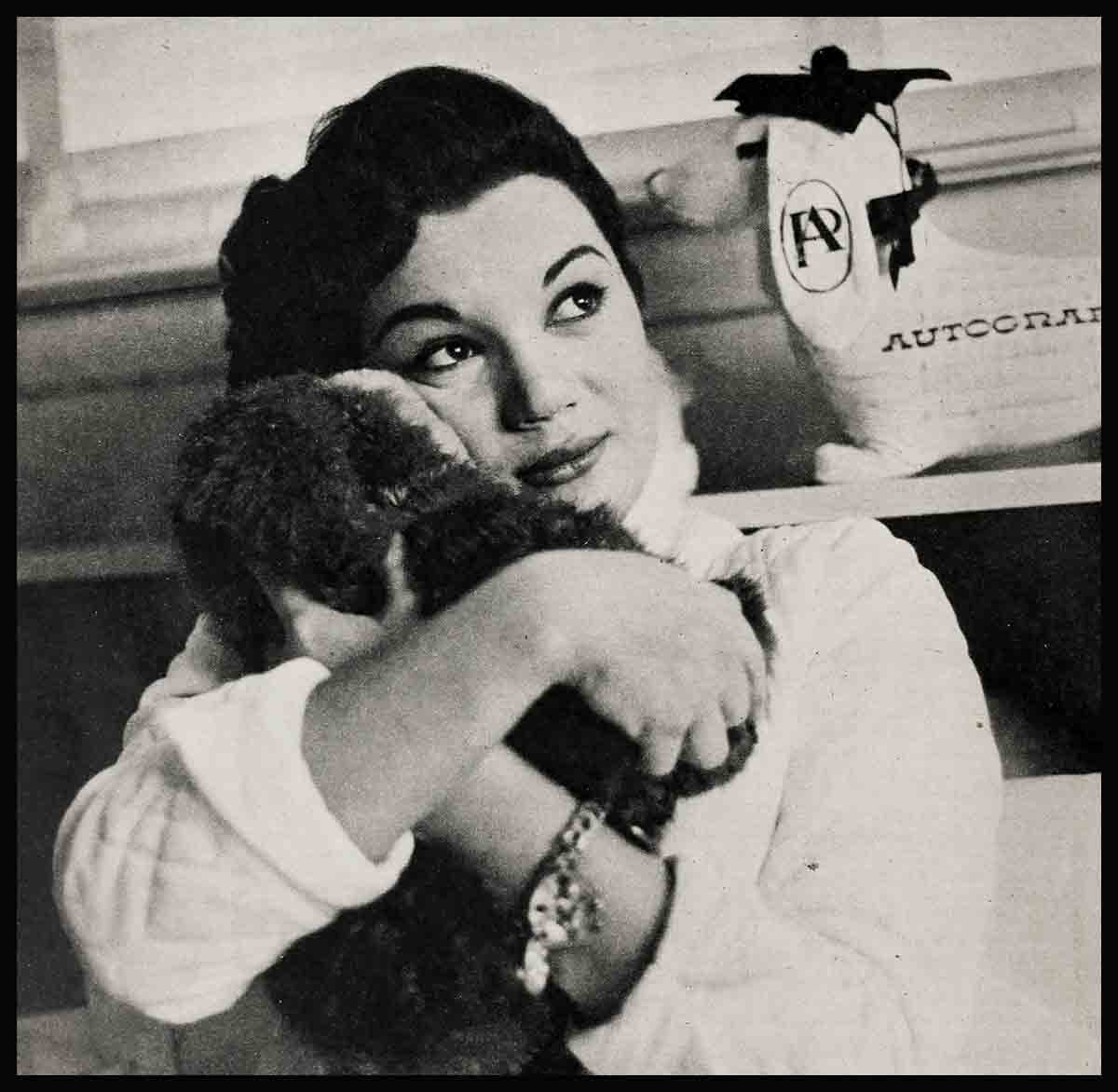
No Comments